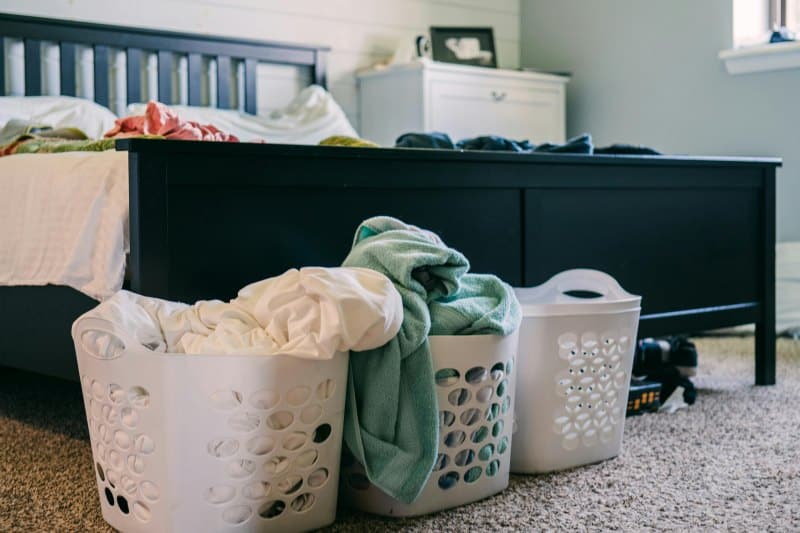A tidy home invokes a sense of peace and balance, which can enhance one’s quality of life significantly. An organized environment has practical implications that can make for more productive, focused daily living. The notion of decluttering, once trivialized as a housekeeping trend, now stands firm as a transformative force in redefining personal spaces.
The Weight of Clutter
Clutter has the uncanny ability to create tension in the mind, dictating moods and behaviors, often without us realizing it. It can be overwhelming, both physically and emotionally, making the space feel smaller and more chaotic. This stress is more than visual; clutter can affect mental clarity and heighten stress levels. Simplifying one’s surroundings by removing unnecessary objects doesn’t just open up physical space; it helps clear the mental cobwebs as well.
Beyond the visible chaos, clutter can create inefficiencies in your daily routines. Searching for that misplaced document or pair of keys results in wasted hours and newfound frustration. Freeing yourself from the clutches of the unnecessary gives back time that can be better spent on what truly matters, whether that’s quality time with loved ones or pursuing hobbies.
During the decluttering process, consider whether any larger items, like furniture, are contributing to the clutter. Options for unwanted furniture removal can clear up significant space and help transform your home environment into one that’s more functional and enjoyable.
A Case for Simplicity
Minimalism emphasizes the value of quality over quantity. By stripping down our belongings to the essentials, people can reap the benefits of a curated space that reflects mindfulness and intention. The overarching aim is simplicity—a home where everything has its place and purpose. A simplified environment can protect against overstimulation and give way to relaxation, comfort, and genuine engagement with one’s surroundings.
While minimalism advocates for fewer items, it also encourages embracing those that enrich your life. It’s important to remember that simplicity doesn’t equate emptiness but a deliberate choice to surround oneself with joy-inducing items. A carefully curated collection can serve as an inspiration and a reminder of what’s truly important, thereby enhancing happiness.
Decluttering also helps in refining personal tastes. As you trim down your belongings, you naturally gravitate towards items that resonate with your core values and aesthetic. This process is both introspective and liberating, allowing you to create a personal sanctuary that genuinely reflects your personality and life philosophy.
Start Small
Embarking on a decluttering mission can feel overwhelming; thus, it is advisable to start small. Begin with a single drawer, a corner of a room, or just one bookshelf. As you complete these small tasks, the motivation continues to build, making it easier to move to more significant challenges.
Categorize and Evaluate
Items in the home should have a purpose. As you go through your belongings, ask yourself whether each item adds value to your life. If it’s expired, broken, unused, or redundant, consider donating, recycling, or disposing of it responsibly. Evaluate your belongings candidly; this encourages greater awareness of consumer habits.
Develop Organization Habits
Decluttering isn’t just a task; it’s an evolving practice. Establish organizational systems that fit your lifestyle and are easy to maintain. Containers, labels, and schedules can all aid in sustaining a structured environment. Building such habits ensures avoiding clutter reaccumulation.
Cultivating a regular habit of tidying up can make a significant difference. Spend a few minutes each day putting things back in their designated places. Not only does this prevent future messes, but it also reinforces the habit of intentional living. As your space remains consistently neat, you begin to appreciate and protect the order you create.
Personalize Your Space
While simplification is key, personal touches make a house feel like home. Display cherished photographs, an heirloom, or art that resonates with your spirit. Living spaces should reflect individuality and provide comfort, serving as both sanctuary and stage for one’s life.
Don’t shy away from adding elements that bring smiles and warmth to your heart. These personalized touches contribute to an atmosphere of happiness and belonging, wrapping you in comfort after a long day. Ensure that your home reflects the moments, journeys, and growth you’ve experienced—a testament to where you’ve been and where you’re heading.
Psychological and Physical Benefits
After a successful declutter, many find they sleep better, concentrate more, and even observe an improvement in relationships. The newly organized surroundings foster creativity and promote peaceful coexistence. Archiving items with sentimental value rather than unnecessary objects enables meaningful memories without the physical baggage. When living spaces are more efficient, you are less likely to spend time searching for misplaced items, thus gaining more free time.
The newfound clarity of a decluttered home extends beyond its physical boundaries. With fewer distractions and enhanced focus, individuals often realize improvements in their work, relationships, and personal growth journeys. It’s akin to hitting the refresh button on life’s daily screen, allowing you to prioritize your time and energies effectively.
Conclusion
Decluttering is more than just an order of cleanliness—it is an act of self-care. By casting off the superfluous in our homes, we create arenas for peace of mind and daily rejuvenation. Becoming an advocate for a cleaner, more organized space may be one of the most impactful decisions anyone can make to improve their mental and physical well-being. Change starts within the walls where you retreat, revive, and live.

